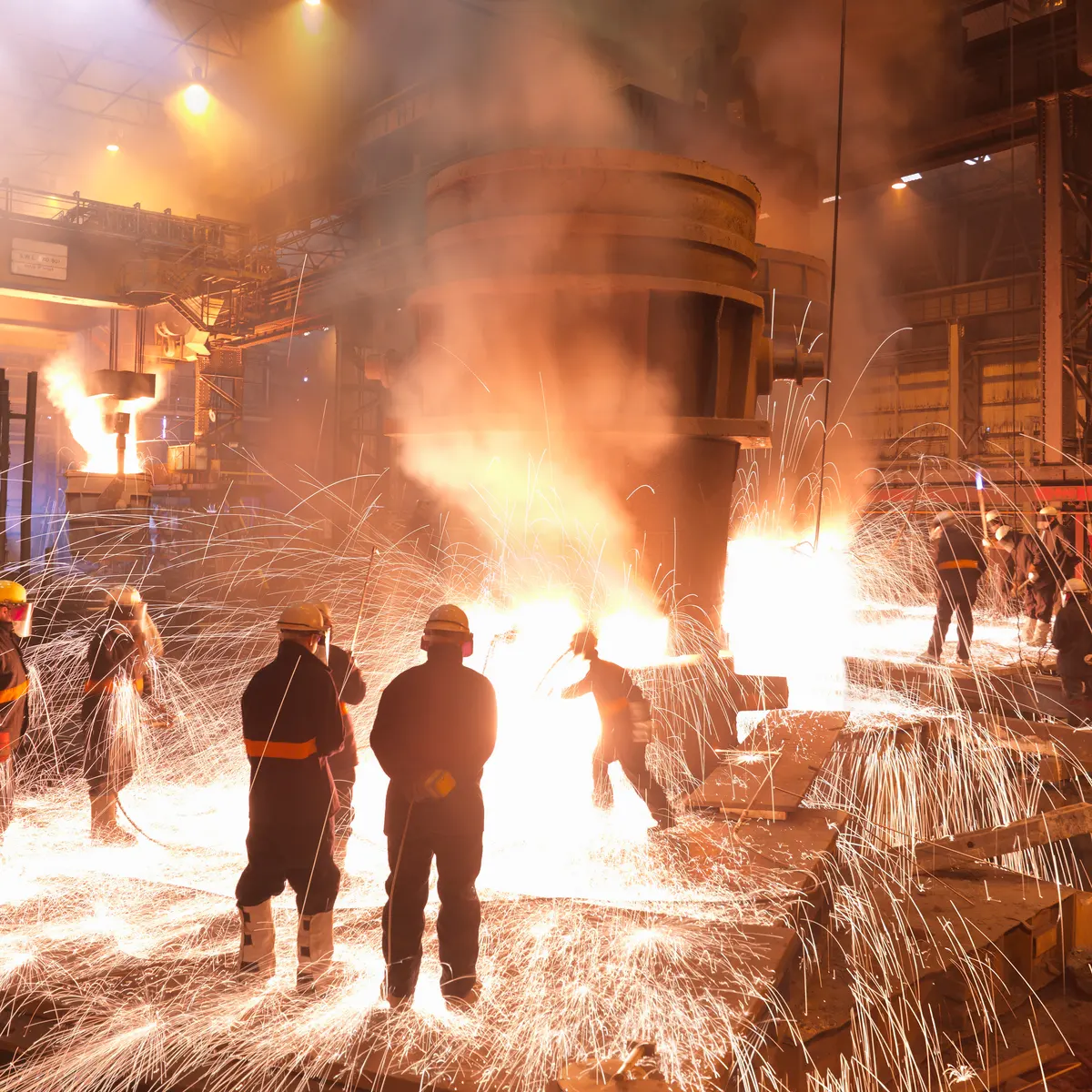The Unfolding Concerns
Complex Challenges for UK’s Steel Industry and Security: In the corridors of parliamentary debate, a grave ‘national security’ discourse has emerged as Tata, a key player in the UK’s steel industry, sets in motion plans to slash 3,000 jobs at its South Wales plant. This strategic maneuver, while aiming to reverse a decade-long financial downturn, raises significant apprehensions among Members of Parliament, particularly regarding the nation’s reliance on foreign steel imports.
Table of Contents
An MP’s Cautionary Note
Stephen Kinnock, the Labour MP for Aberavon and the shadow minister for immigration, sounded a cautionary note, highlighting the potential fallout of Tata’s decision. In his assessment, the move effectively positions the UK as the sole G20 nation incapable of independently producing its own steel. The implications of such a predicament extend beyond economic considerations, delving into the realms of national security.
Tata’s Strategic Shift
The crux of the matter lies in Tata’s recent announcement to close the blast furnaces at the Port Talbot plant, a move expected to result in the loss of more than 3,000 jobs. The phased approach includes 2,800 job cuts within the next 18 months and an additional 300 positions in subsequent phases. Tata, an Indian-owned conglomerate with a significant presence in the UK, justifies this strategic shift as a necessary step to combat a prolonged period of financial losses.
Union Outrage
The announcement has not gone unnoticed by labor unions, with both the GMB and Community expressing outright outrage. In a joint statement, they denounced Tata Steel and the UK government for seemingly prioritizing the cost-effectiveness of their plan over what they believe to be the best course of action.
Analyzing National Security Implications
Beyond the immediate economic concerns, the Port Talbot closure raises critical questions about the UK’s national security. As the nation becomes increasingly dependent on foreign steel imports, vulnerabilities emerge in the supply chain. This dependence not only impacts the resilience of the UK’s industrial base but also raises concerns about the country’s ability to respond effectively in times of crisis.
The Unsettling Precedence
Tata’s decision marks a significant departure from the notion of self-sufficiency that has been a cornerstone of industrial policy in many G20 nations. The UK, if unable to produce its own steel, may find itself at the mercy of global market fluctuations and geopolitical uncertainties, potentially compromising its strategic interests.
Global Steel Dynamics and the UK’s Positioning
To comprehend the broader context, it is essential to examine the global dynamics of the steel industry. With China emerging as a dominant player, the dynamics of steel production and consumption have undergone significant shifts. The UK, grappling with its industrial landscape, is now compelled to navigate these changes strategically.
The Chinese Steel Influence
China’s prowess in steel production presents both opportunities and challenges for nations like the UK. While Chinese steel may offer a cost-effective solution, the strategic implications of relying on a foreign power for a critical component of national infrastructure are profound. The question arises: How does the UK balance the economic benefits with the potential security risks?
Government Response and Future Strategies
In the wake of Tata’s announcement, the UK government faces the challenge of formulating a response that addresses both economic and security concerns. The intricate dance between economic pragmatism and strategic foresight becomes pivotal in shaping the nation’s steel landscape.
Multifaceted Approaches
In the short term, the government may need to explore alternative sources for steel imports, diversifying its supplier base to mitigate potential risks. Simultaneously, initiatives to revive domestic steel production may be considered, fostering an environment conducive to industrial growth.
Conclusion: Challenges for UK’s Steel Industry and Security
As the Port Talbot closure reverberates through parliamentary debates and union protests, the UK stands at a crossroads. The decision by Tata to reshape its operations sends ripples across the nation’s economic and strategic landscape. The intricate interplay between economic realities, global dynamics, and national security concerns necessitates a nuanced approach.
A Call for Pragmatic Resilience
In navigating these uncertain waters, the UK must cultivate pragmatic resilience. It involves striking a delicate balance between economic considerations and the imperative to safeguard national security interests. The Port Talbot closure serves as a stark reminder that the steel industry is not only an economic force but also an integral component of a nation’s strategic resilience.
As the parliamentary discourse continues, decisions made in the coming months will shape the trajectory of the UK’s steel industry and its position on the global stage. The interconnection between economic choices and national security underscores the complexity of modern industrial policymaking. The UK, in facing the challenges posed by Tata’s strategic shift, has an opportunity to redefine its approach to industrial self-sufficiency, ensuring a future where economic vitality aligns seamlessly with strategic resilience.







